November 27 stands as one of history’s most eventful days, witnessing the rise and fall of empires, groundbreaking discoveries, and moments that shaped our modern world across centuries of human achievement.

Politics and Government Events on November 27
1917 – P. E. Svinhufvud Becomes Finland’s First Prime Minister

P. E. Svinhufvud assumed leadership as chairman of his first senate, technically becoming Finland’s first Prime Minister. This appointment marked a pivotal moment in Finnish independence efforts during World War I.
The position established crucial governmental foundations for the emerging nation. Svinhufvud’s leadership would prove instrumental in navigating Finland’s transition from Russian rule to independence.
1973 – Gerald Ford Confirmed as Vice President
The United States Senate voted 92-3 to confirm Gerald Ford as Vice President under the Twenty-fifth Amendment. This overwhelming bipartisan support demonstrated rare political unity during the Watergate era.
Ford’s confirmation represented the first use of the Twenty-fifth Amendment for vice presidential succession. The House would later confirm him 387-35 on December 6, completing the historic process.
1999 – Helen Clark Becomes New Zealand’s First Elected Female Prime Minister
The centre-left Labour Party secured control of New Zealand’s government with Helen Clark as leader. Clark became the first elected female prime minister in New Zealand’s history.
Her victory marked a significant milestone in women’s political representation globally. Clark’s leadership would span nearly a decade, transforming New Zealand’s domestic and international policies.
2006 – Canada Recognizes Québécois as a Nation
The House of Commons of Canada approved Prime Minister Stephen Harper’s motion recognizing the Québécois as a nation within Canada. This historic vote addressed decades of Quebec sovereignty debates.
The motion represented a carefully crafted compromise on Quebec’s constitutional status. Harper’s initiative aimed to strengthen national unity while acknowledging Quebec’s distinct identity.
2024 – Syrian Rebels Launch Major Offensive

Syrian rebel groups led by Hay’at Tahrir al-Sham launched a significant ground offensive into Syria. The operation marked a major escalation in the ongoing Syrian conflict.
The offensive represented the largest rebel military action in years. International observers closely monitored the situation for potential regional implications.
Military and Naval History on November 27
1940 – Battle of Cape Spartivento
The Royal Navy engaged the Regia Marina in a significant Mediterranean Sea battle during World War II. British and Italian naval forces clashed in strategic waters crucial to wartime supply lines.
The engagement demonstrated ongoing naval warfare importance in the Mediterranean theater. Both fleets sustained damage while pursuing their respective strategic objectives in the region.
1942 – French Navy Scuttles Fleet at Toulon
The French navy deliberately scuttled its ships and submarines at Toulon to prevent Nazi seizure. This dramatic act of defiance preserved French naval honor while denying Germany valuable warships.
Over 60 vessels were destroyed in the operation, including battleships and cruisers. The scuttling represented one of the largest deliberate naval destructions in maritime history.
1944 – RAF Fauld Explosion Kills Seventy

A massive explosion at a Royal Air Force ammunition dump in Staffordshire claimed seventy lives. The blast created one of the largest non-nuclear explosions in British history.
The incident highlighted the dangerous nature of wartime ammunition storage. Investigation revealed the explosion’s devastating impact on the surrounding countryside and local communities.
1945 – CARE Founded for European Relief

The Cooperative for American Remittances to Europe was established to send CARE Packages to war-torn Europe. This humanitarian initiative addressed widespread food shortages following World War II.
CARE’s founding represented American commitment to European reconstruction. The organization’s relief efforts would help millions of Europeans recover from wartime devastation.
Science and Discovery Milestones on November 27
1971 – First Human-Made Object Reaches Mars
The Soviet space program’s Mars 2 orbiter released a descent module that became the first human-made object to reach Mars’ surface. Although the module malfunctioned and crashed, it achieved a historic milestone.
The mission marked humanity’s first physical contact with the Red Planet. Despite the technical failure, Mars 2 paved the way for future successful Mars exploration missions.
2001 – First Extrasolar Planet Atmosphere Detected

The Hubble Space Telescope discovered a hydrogen atmosphere on the extrasolar planet Osiris. This groundbreaking observation marked the first atmosphere detected on a planet outside our solar system.
The discovery revolutionized exoplanet research and atmospheric studies. Scientists gained unprecedented insights into planetary composition beyond Earth’s immediate cosmic neighborhood.
2020 – Iranian Nuclear Scientist Assassinated
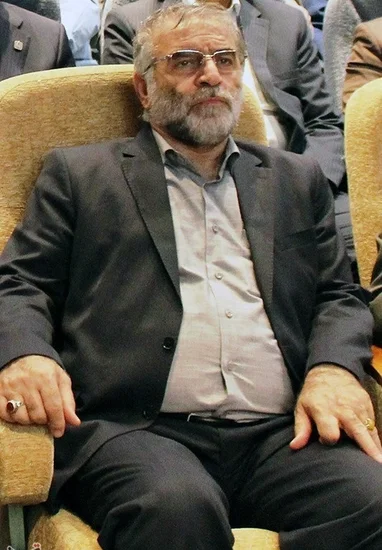
Iran’s top nuclear scientist Mohsen Fakhrizadeh was assassinated near Tehran. The killing heightened tensions surrounding Iran’s nuclear program and regional security concerns.
International observers closely monitored the incident’s implications for nuclear negotiations. The assassination significantly impacted Middle Eastern diplomatic relations and nuclear policy discussions.
2020 – Utah Monolith Mysteriously Removed

Days after its discovery announcement, the Utah monolith was removed by recreationists. The mysterious metal structure had captured worldwide attention and sparked numerous theories about its origin.
The monolith’s sudden disappearance ended a brief but intense period of global fascination. Similar structures subsequently appeared in other locations, creating an ongoing cultural phenomenon.
Cultural and Arts Events on November 27
1924 – First Macy’s Thanksgiving Day Parade
New York City hosted the inaugural Macy’s Thanksgiving Day Parade, establishing an enduring American tradition. The parade featured floats, bands, and entertainers celebrating the holiday season.
The event quickly became a beloved national spectacle broadcast to millions. Macy’s parade would evolve into one of America’s most watched annual television events.
1968 – Penny Ann Early Breaks Basketball Gender Barrier
Penny Ann Early became the first woman to play in a major professional men’s basketball league. She appeared for the Kentucky Colonels in an ABA game against the Los Angeles Stars.
Early’s participation challenged traditional gender roles in professional sports. Her groundbreaking appearance paved the way for future discussions about women in men’s professional athletics.
1978 – Harvey Milk and George Moscone Assassinated
San Francisco Mayor George Moscone and openly gay city supervisor Harvey Milk were assassinated by former supervisor Dan White. The double murder shocked the city and the nation.
The killings represented a tragic loss for progressive politics and LGBTQ+ rights. Milk’s death transformed him into a martyr for gay rights and social justice movements.
Religious and Social Events on November 27
1978 – Kurdistan Workers’ Party Founded
The Kurdistan Workers’ Party (PKK) was established in the Turkish village of Fis. The organization’s founding marked the beginning of a decades-long Kurdish independence movement.
The PKK’s creation reflected growing Kurdish nationalist aspirations in Turkey. The organization would significantly impact regional politics and Turkish-Kurdish relations for generations.
1989 – Second Souhane Massacre in Algeria
Twenty-five people were killed in the second Souhane massacre during Algeria’s civil conflict. The violence highlighted the ongoing humanitarian crisis plaguing the North African nation.
The massacre represented one of many tragic incidents during Algeria’s “Black Decade.” International attention focused on the deteriorating security situation and civilian casualties.
2004 – Pope Returns Orthodox Relics
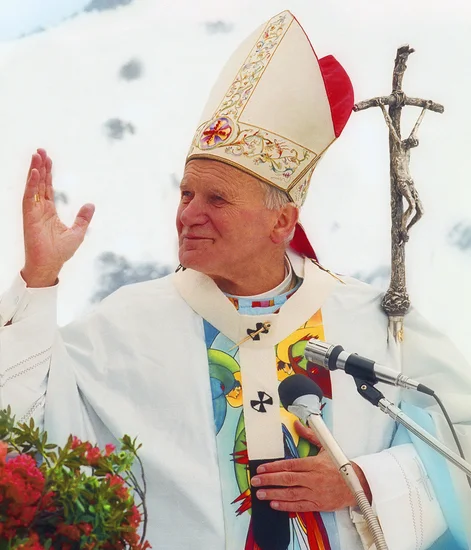
Pope John Paul II returned the relics of Saint John Chrysostom to the Eastern Orthodox Church. This gesture represented a significant step toward Christian ecumenical reconciliation.
The return addressed centuries-old grievances between Catholic and Orthodox churches. Pope John Paul II’s initiative demonstrated commitment to healing historical religious divisions.
Business and Economic Events on November 27
1984 – Brussels Agreement on Gibraltar
The United Kingdom and Spain signed the Brussels Agreement, with Britain agreeing to discuss Gibraltar’s sovereignty. The accord addressed longstanding territorial disputes between the two nations.
The agreement represented a diplomatic breakthrough in Anglo-Spanish relations. Negotiations would continue for decades, balancing British sovereignty claims with Spanish territorial interests.
1992 – Venezuelan Military Coup Attempt
Military forces attempted to overthrow President Carlos Andrés Pérez in Venezuela for the second time in one year. The coup reflected growing political instability in the oil-rich nation.
The failed military intervention highlighted Venezuela’s economic and political crisis. These events foreshadowed future political upheavals that would reshape Venezuelan society.
2001 – Hydrogen Atmosphere Discovery

The Hubble Space Telescope detected the first atmosphere on an extrasolar planet, marking a breakthrough in astronomical research. This discovery opened new frontiers in space exploration and planetary science.
The finding revolutionized understanding of planetary formation and atmospheric composition. Scientists gained valuable insights into the potential for life beyond Earth’s solar system.
Transportation and Infrastructure on November 27
1983 – Avianca Flight 011 Crashes in Madrid

A Boeing 747 crashed near Madrid’s Barajas Airport, killing 181 people in one of aviation’s deadliest accidents. The disaster highlighted critical aviation safety concerns and emergency response protocols.
Investigation revealed multiple factors contributing to the tragic crash. The incident led to significant improvements in airport approach systems and pilot training procedures.
1989 – Avianca Flight 203 Bombing

A Boeing 727 exploded mid-air over Colombia, killing all 107 aboard and three on the ground. The Medellín Cartel claimed responsibility for this terrorist attack.
The bombing represented the cartel’s escalating violence against civilian targets. International aviation security measures were significantly enhanced following this devastating attack.
2009 – Nevsky Express Train Bombing
A bomb exploded on the Nevsky Express train between Moscow and Saint Petersburg, causing 28 deaths and 96 injuries. The terrorist attack shocked Russian society and prompted security reviews.
The bombing highlighted ongoing security challenges in Russian transportation infrastructure. Authorities implemented enhanced security measures across the national railway system.
Sports and Recreation on November 27
1968 – Penny Ann Early Makes Basketball History
Penny Ann Early became the first woman to play in a major professional men’s basketball league. She appeared for the Kentucky Colonels in an ABA game against the Los Angeles Stars.
Early’s participation challenged traditional gender roles in professional sports. Her groundbreaking appearance paved the way for future discussions about women in men’s professional athletics.
1975 – Ross McWhirter Assassinated
The Provisional IRA assassinated Ross McWhirter after he announced a reward for bombers’ capture. McWhirter, co-founder of the Guinness Book of Records, had offered money for information leading to terrorist arrests.
His assassination demonstrated the IRA’s willingness to target civilian critics. The killing shocked Britain and highlighted the personal risks faced by those opposing terrorism.
2015 – Colorado Springs Planned Parenthood Shooting
An active shooter at a Colorado Springs Planned Parenthood facility killed three people and wounded nine others. The attack highlighted ongoing tensions surrounding reproductive rights and healthcare access.
The shooting sparked national debates about political rhetoric and violence. Law enforcement response procedures were scrutinized following the tragic incident.
Notable Births on November 27
1901 – Lars Onsager, Nobel Prize-Winning Chemist
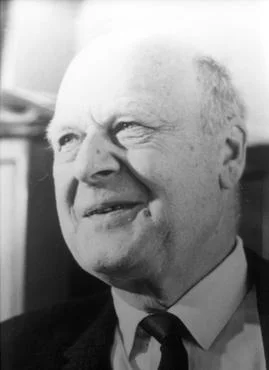
Norwegian-American chemist Lars Onsager was born, destined to win the Nobel Prize in Chemistry in 1968. His theoretical work on irreversible thermodynamic processes revolutionized physical chemistry.
Onsager’s reciprocal relations became fundamental principles in thermodynamics. His mathematical approach to chemical processes influenced generations of scientists and engineers.
1940 – Bruce Lee, Martial Arts Legend

American-Chinese actor and martial artist Bruce Lee was born in San Francisco. His childhood between American and Chinese cultures shaped his unique philosophy and fighting style.
Lee would revolutionize martial arts cinema and popularize Eastern philosophy in the West. His influence extended far beyond entertainment into fitness, philosophy, and cultural understanding.
1942 – Jimi Hendrix, Guitar Virtuoso

American guitarist Jimi Hendrix was born in Seattle, Washington. His innovative approach to electric guitar would transform rock music and popular culture forever.
Hendrix’s psychedelic sound and revolutionary techniques influenced countless musicians. His brief but brilliant career established him as one of music’s most important figures.
1951 – Kathryn Bigelow, Groundbreaking Director

American director Kathryn Bigelow was born, eventually becoming the first woman to win an Academy Award for Best Director. Her action films challenged gender stereotypes in Hollywood.
Bigelow’s work in typically male-dominated genres earned critical acclaim. Her success opened doors for future generations of female filmmakers in action and thriller genres.
1955 – Bill Nye, Science Educator
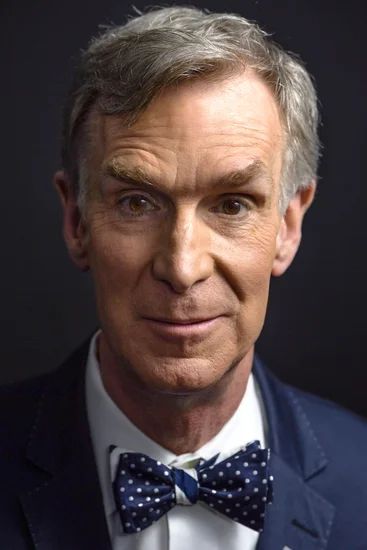
American engineer and educator Bill Nye was born, later becoming known as “Bill Nye the Science Guy.” His television show made science accessible and entertaining for millions of children.
Nye’s enthusiastic approach to science education influenced an entire generation. His work bridged entertainment and education, making complex scientific concepts understandable and fun.
1957 – Caroline Kennedy, Presidential Daughter

Caroline Kennedy was born, daughter of President John F. Kennedy and later serving as U.S. Ambassador to Australia. Her life has been marked by public service and literary achievement.
Kennedy’s career included law, writing, and diplomacy. She maintained the Kennedy family’s tradition of public service while forging her own professional path.
1964 – Robin Givens, Actress
American actress Robin Givens was born, later gaining fame in television and film. Her career spanned multiple decades and included notable dramatic and comedic roles.
Givens became a prominent figure in entertainment and social issues. Her advocacy work addressed domestic violence and women’s rights throughout her career.
Notable Deaths on November 27
1934 – Baby Face Nelson, Notorious Criminal
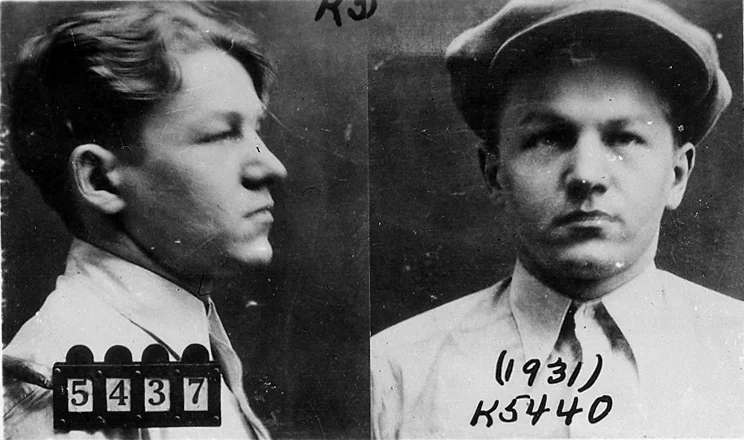
American criminal Baby Face Nelson died in a shootout with federal agents. His violent criminal career terrorized the Midwest during the Great Depression era.
Nelson’s death marked the end of one of the FBI’s most wanted fugitives. His criminal exploits became legendary in American crime history and popular culture.
1953 – Eugene O’Neill, Nobel Prize-Winning Playwright
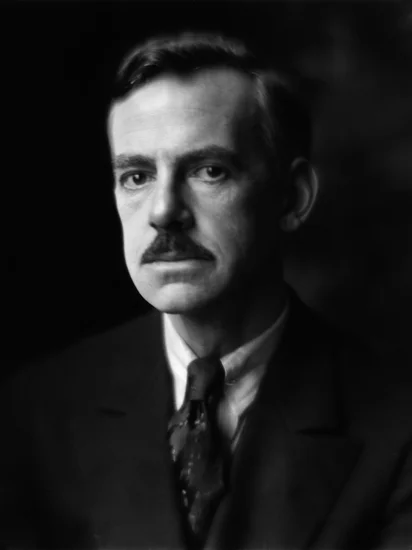
American playwright Eugene O’Neill died, leaving behind a revolutionary theatrical legacy. His psychological dramas transformed American theater and earned him the Nobel Prize in Literature.
O’Neill’s works explored complex family dynamics and human psychology. His innovations in dramatic structure and character development influenced generations of playwrights.
1975 – Ross McWhirter, Guinness Book Co-Founder
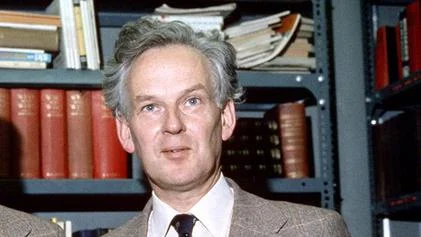
English author Ross McWhirter was assassinated by the Provisional IRA after offering rewards for terrorist information. He co-founded the Guinness Book of Records with his twin brother.
McWhirter’s death shocked Britain and highlighted the personal risks faced by terrorism opponents. His work documenting world records became a global cultural phenomenon.
1978 – Harvey Milk, Gay Rights Pioneer

American politician Harvey Milk was assassinated in San Francisco City Hall. His death transformed him into a martyr for gay rights and social justice movements.
Milk’s brief political career broke significant barriers for LGBTQ+ representation. His assassination sparked nationwide protests and accelerated gay rights activism.
1978 – George Moscone, San Francisco Mayor

American lawyer and politician George Moscone was assassinated alongside Harvey Milk in San Francisco City Hall. His progressive leadership had championed civil rights and social justice.
Moscone’s death robbed San Francisco of a transformative leader. His legacy included significant advances in minority rights and urban development policies.
2020 – Mohsen Fakhrizadeh, Nuclear Scientist

Iranian nuclear scientist Mohsen Fakhrizadeh was assassinated near Tehran. His death heightened international tensions surrounding Iran’s nuclear program and regional security.
Fakhrizadeh’s assassination significantly impacted Middle Eastern diplomacy. The killing raised questions about nuclear proliferation and international security cooperation.
Holidays and Observances on November 27
Christian Feast Days
November 27 commemorates multiple Christian saints including Acarius of Tournai, Barlaam and Josaphat, and Our Lady of the Miraculous Medal. These observances reflect the rich tradition of Christian martyrdom and devotion.
Eastern Orthodox churches also observe special liturgical commemorations on this date. The various feast days demonstrate Christianity’s global reach and diverse traditions.
Lancashire Day, United Kingdom
Lancashire Day celebrates the historic county of Lancashire and its cultural heritage. The observance honors the region’s industrial history and traditional customs.
Communities throughout Lancashire organize special events and activities. The day promotes awareness of the county’s contributions to British history and culture.
Teacher’s Day, Spain
Spain observes Teacher’s Day on November 27, honoring educators and their vital role in society. The celebration recognizes teachers’ contributions to national development and individual growth.
Schools and educational institutions organize special ceremonies and activities. The day highlights the importance of education in Spanish society and culture.
